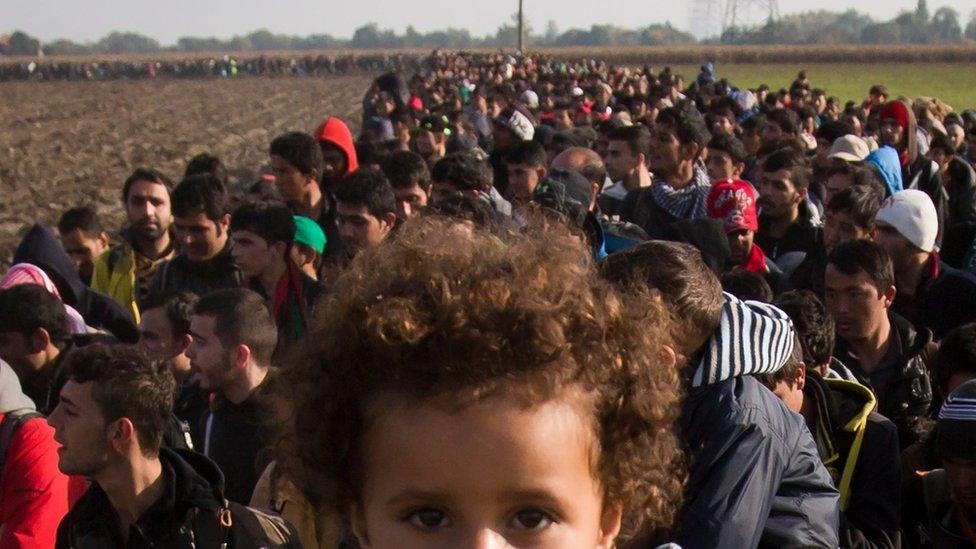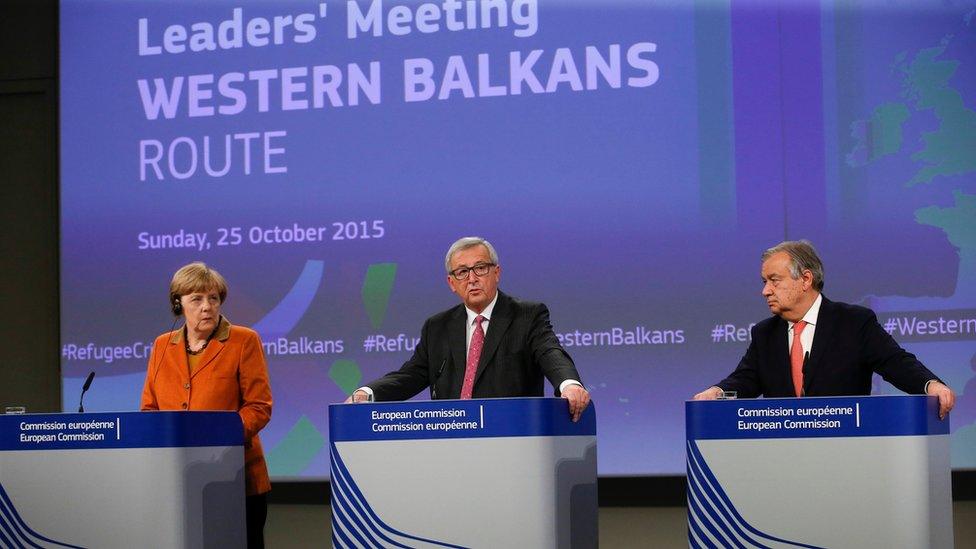Small steps, sharp retorts: Europe's rifts laid bare in Brussels
- Published

Slovenia will get help to police its borders, where 15,000 crossed on Sunday
After a mini-summit, European leaders have agreed steps to strengthen border controls along Greek and Slovenian borders, to try and slow the movement of refugees and migrants through the region.
There was grumbling, there was pleading, and there were several sharp retorts.
It was sometimes hard to remember that all the leaders who turned up here professed to want the same thing: an end to the chaos that increasingly marks the migration route through the Western Balkans.
They don't agree on the way to do it.
European Commission President Jean-Claude Juncker, who called the meeting, was hoping to rekindle a spirit of co-operation and trust that would allow countries to co-ordinate with each other - taking time to register new arrivals, and not simply waving them through to their next destination, or, as Slovenia has put it, "dumping" them on their border.
The pressure is real: 9,000 people a day have been crossing into Greece. And on Sunday alone, the government of Slovenia - a country of two million - said 15,000 people arrived at their border.
Without agreeing concrete steps soon, its Prime Minister Miro Cerar said Europe "will start to fall apart".
It's already splintering.

Jean-Claude Juncker (centre) had to settle for a watered-down version of the deal he wanted
Deep rifts have opened up in the region, as the number of migrants has increased, and Mr Juncker's new proposals to strengthen Schengen's external borders in Greece and Slovenia play into national fears, as countries further along the route fear being turned into buffer zones.
In the story of Europe's migrant crisis, one nation's protection becomes another nation's problem.
In the end, he got a watered-down version of the co-operation he'd been hoping for: a commitment from countries to inform their neighbours before sending migrants and refugees their way, and to make an effort to process them properly.
In return, he promised extra border police for Greece and Slovenia, and 100,000 new places at reception centres along the West Balkans route.
Was it worth it?
Even before the meeting began, Croatia's Prime Minister Zoran Milanovic labelled the plan "unrealistic", drafted by someone "who had just woken up from a months-long sleep". The solution, he said, lay in Turkey and Greece.
It's a sentiment echoed by many of the leaders here - that without action from Turkey in stemming the number of people crossing its border into Greece, anything else is just tinkering around the edges.
The German Chancellor, Angela Merkel, acknowledged that the meeting was about managing the situation rather than tackling the root cause; any real solution, she said, would have to involve Ankara.
So was it all worth it? The Serbian Prime Minister, Aleksander Vucic, summed it up. One of the optimists going in to the meeting, he was the first to speak after it broke up.
Standing slack-limbed in front of the microphone, he told waiting reporters that the agreement would not be "immediately helpful". We're looking at "small steps," he said.
"Hopefully, step by step, things will get a bit better."